Britain is bracing itself for an autumn of discontent with essential services across the country crippled by strikes in coming weeks.
London Underground workers are to walk out next month in a dispute over pay and conditions, the RMT union announced on Thursday.
The workers will begin the week-long walkout on Friday, September 5, just as schools reopen and office staff return to their normal routines.
Union leaders said rail bosses had ‘refused to engage seriously’ with their demands on pay as well as concerns about fatigue management and ‘extreme shift patterns’.
Underground workers were also demanding a reduction in the working week and to honour previous agreements made with staff.
In a separate dispute over pay and conditions, workers on the Docklands Light Railway will also be striking during this period.
The union said the action would bring ‘significant disruption to the capital’s transport network’.
Meanwhile, GPs, junior doctors and nurses indicated they may strike during the winter months demanding higher pay and funding.
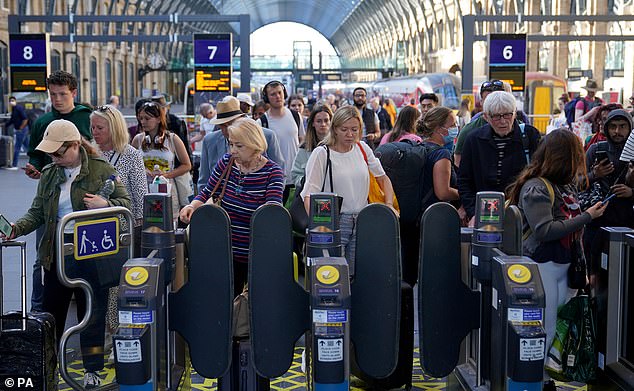
Britain is bracing itself for an autumn of discontent with essential services across the country crippled by strikes in coming weeks
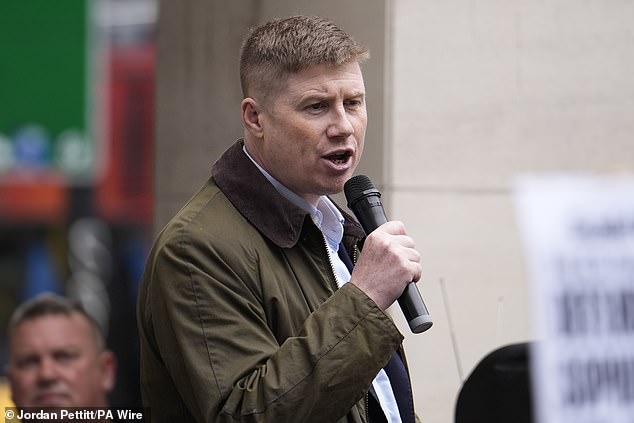
RMT General Secretary Eddie Dempsey said workers were not after the ‘King’s ransom’
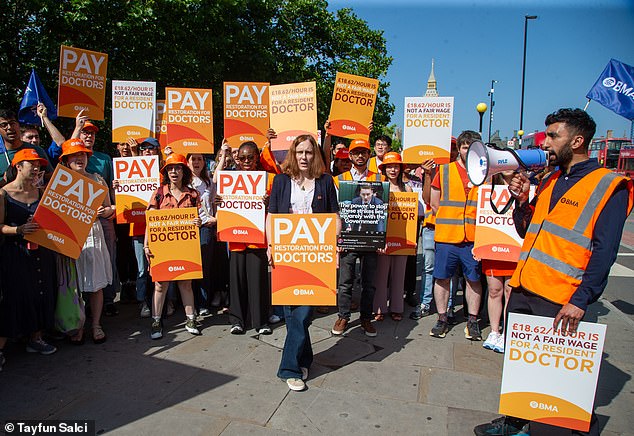
Meanwhile, GPs, junior doctors and nurses indicated they may strike during the winter months demanding higher pay and funding
And discontent has hit other sectors, including bin collectors in London, as well as Birmingham, where a five-month walkout is set to continue until Christmas over pay cuts.
The threat of further strikes will come as a blow to Prime Minister Sir Keir Starmer, who had hoped to tame the unions with promises of backdated public sector pay rises, as well as Chancellor Rachel Reeves, who has attempted to balance demands from the unions with struggling government budgets.
Health Secretary Wes Streeting said the government had a ‘responsibility’ to stand up to pay rise demands and keep the country working.
‘You look at the range of pressures we’re facing domestically, internationally, economically, public services, the expectations of the country, the pain that families are feeling in their pockets and I’m always conscious that over and above everyone else, Keir and Rachel are carrying all of those pressures together’, he told the Political Currency podcast.
‘And so I think it is our responsibility to say to our own departments, or own audiences, or the people we’re responsible for and the services that we’re responsible for, ‘you need to understand that we can’t do everything for everyone, everywhere, all at once’.’
Martin Beck, WPI Strategy’s chief economist, told The Telegraph that the impending train strikes could hugely impact the capital: ‘We estimate that it could cost the London economy up to a quarter of a billion pounds in the form of lost revenue to TfL and London businesses, more congestion on the roads and extra travel time for commuters.’
Labour Mayor of London Sir Sadiq Khan also blasted the walkouts.
A spokesman said: ‘Nobody wants to see strike action or disruption for Londoners.
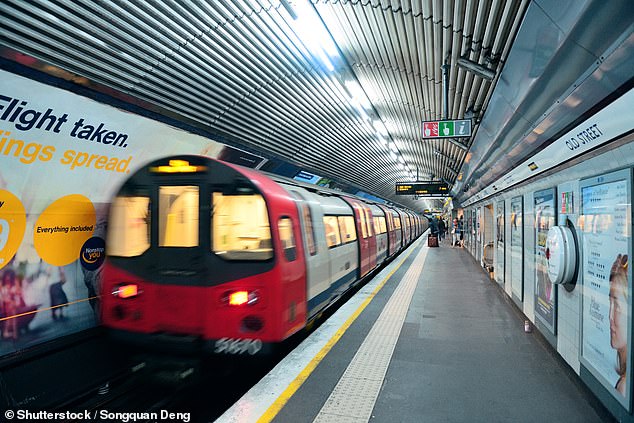
London Underground workers are to stage a series of strikes next month in a dispute over pay and conditions

Health Secretary Wes Streeting said the government had a ‘responsibility’ to stand up to pay rise demands and keep the country working
‘The mayor urges the RMT and TfL to get around the table to resolve this matter and avoid industrial action.’
RMT General Secretary Eddie Dempsey said: ‘Our members are doing a fantastic job to keep our capital moving and work strenuous shift patterns to make sure Londoners get to their destinations around the clock.
‘They are not after a King’s ransom, but fatigue and extreme shift rotations are serious issues impacting on our members health and wellbeing- all of which have not been adequately addressed for years by LU management.
‘Coupled with the fact there are outstanding issues around staff travel arrangements, an atmosphere of distrust has been created, where our members feel like no one is listening to them.
‘RMT will continue to engage LU management with a view to seeking a revised offer in order to reach a negotiated settlement.’
A Transport for London spokesperson said: ‘We regularly meet with our trade unions to discuss any concerns that they may have, and we recently met with the RMT to discuss some specific points.
‘We are committed to ensuring our colleagues are treated fairly and, as well as offering a 3.4% pay increase in our ongoing pay discussions, we have made progress on a number of commitments we have made previously.
‘We welcome further engagement with our unions about fatigue and rostering across London Underground, but a reduction in the contractual 35-hour working week is neither practical nor affordable.
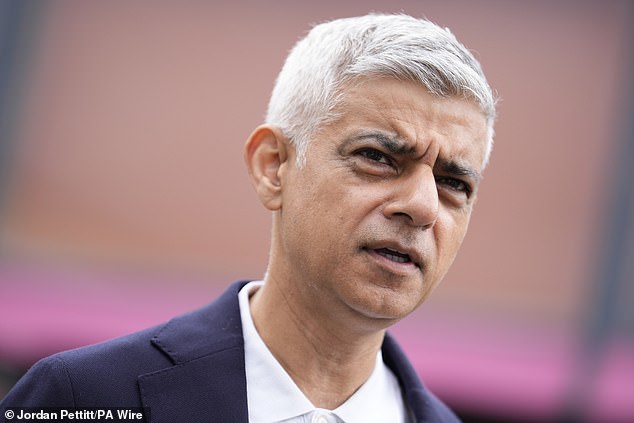
Labour Mayor of London Sir Sadiq Khan has also slammed the walkouts planned by the RMT
‘Given the improvements we have recently put in place in response to concerns raised by our unions, we urge the RMT to put our fair, affordable pay offer to their members and to continue to engage with us rather than threaten strike action, which will only disrupt Londoners.’
The strikes will involve different parts of the rail network striking at different times.
On Friday September 5 and Saturday 6, managers at Ruislip depot are set to strike over pay, in a separate walkout to the main dispute. The Central Line is likely to be affected.
On Sunday 7, track access controllers, power control and Emergency Response Unit (ERU) workers will refuse to work. This is likely to cause long delays in the case of any incidents and could affect all Tube lines.
On Monday 8 and Wednesday 10, the majority of engineers and station workers will walk out, which will likely lead to stations closing from lack of staff and fewer trains available on the network.
While on Tuesday 9 and Thursday 11, signallers, service control and ERU members will strike. This is likely to cancel most of the services as trains are not able to safely run without signalling staff.











